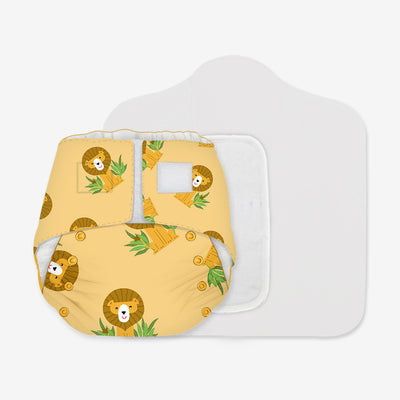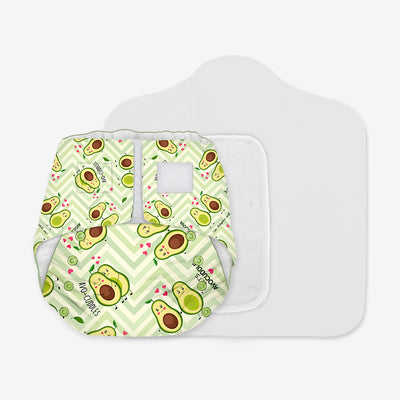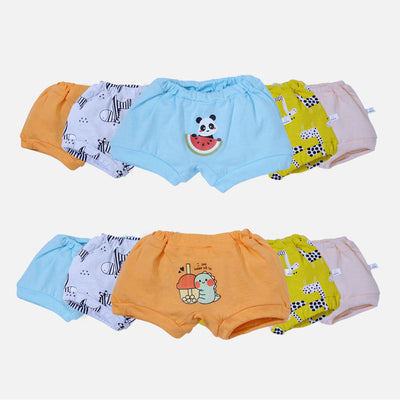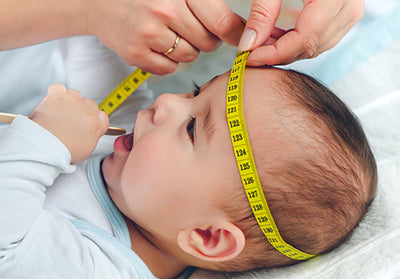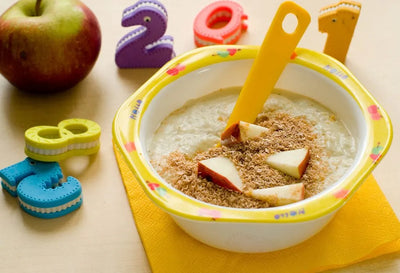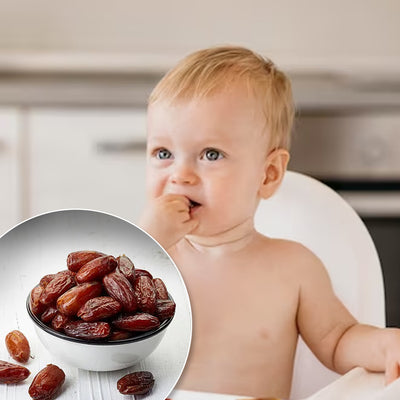Differences Between Newborns, Infants, Toddlers, and Babies

Welcome to the fascinating world of child development! Growing up is a journey filled with countless milestones and remarkable transformations. In this captivating exploration, we will delve into the distinct stages of infancy, from the delicate newborn stage to the energetic toddler years. Join us as we unravel the mysteries behind the physical, cognitive, and emotional changes that shape these formative years. Discover the incredible growth and development that takes place within the first few years of life, as we navigate the differences between newborns, infants, toddlers, and babies. Whether you are a new parent eager to understand the stages your little one will go through or a curious observer fascinated by the miracles of human development, this insightful journey will provide you with a deeper understanding of the intricate and awe-inspiring process of growing up. So, let's dive in and embark on this remarkable expedition into the world of babies, infants, toddlers, and newborns.
1)Newborn
a) What age is a newborn?
A newborn is a term used to describe a baby who has recently entered the world. The World Health Organization defines a newborn as a baby less than 28 days old, while doctors and experts commonly refer to as newborns up to 2 months of age.
A newborn is a term used to describe a baby in the first few weeks of life. This stage is characterized by incredible growth and development as the baby adjusts to life outside the womb. Physically, newborns are typically small and fragile, with their movements limited to reflexes such as sucking and grasping. They are highly dependent on their caregivers for all their needs, including feeding, diaper changes, and sleep. Newborns spend most of their time sleeping, with short periods of wakefulness for feeding. Their senses are developing rapidly, allowing them to recognize familiar voices and faces. Despite their limited abilities, newborns are capable of forming strong emotional bonds with their caregivers, setting the foundation for healthy attachment and relationships in the future.
Newborns undergo rapid growth and development in the first few weeks of life. Their weight and length increase significantly, and their muscles and bones begin to strengthen. They start to exhibit more controlled movements, such as turning their heads towards sounds and tracking objects with their eyes. As their digestive system matures, they gradually transition from a liquid diet to solid foods. Newborns are also more alert and responsive, engaging in social interactions and displaying emotions such as smiling and crying. This stage is crucial for establishing the baby's sleep patterns and developing their sensory and motor skills. Providing a nurturing and stimulating environment is essential for supporting their growth and development during this period.
b)Key milestones for Newborn
Weight gain, muscle development, recognition of familiar faces and voices, smiling, and forming emotional bonds.
c)Parenting tips for Newborn
Establish a consistent routine, provide plenty of skin-to-skin contact, and respond to their needs promptly.
2)Infant
a)What age is an infant?
An infant is commonly described as a child in the initial stages of life, typically from birth up to approximately 1 year of age. This phase is marked by swift growth and developmental milestones, including fundamental achievements like rolling over, sitting up, and taking those first steps. Although there might be slight variations in the precise age range denoting infancy, the term universally refers to the formative first year of a child's life.
An infant is a term used to describe a baby between the ages of one month and one year. This stage is marked by significant physical, cognitive, and emotional advancements as the baby continues to grow and explore the world around them. Infants become more active and mobile, developing the ability to roll over, sit up, crawl, and eventually walk. Their fine motor skills improve, enabling them to grasp objects and manipulate them with increasing dexterity. Infants also begin to babble and experiment with sounds, laying the foundation for language acquisition.
Cognitive development takes center stage during infancy, with infants displaying a growing curiosity about their surroundings. They start to recognize familiar faces and objects, responding with excitement or interest. Problem-solving skills emerge as they explore cause-and-effect relationships, such as shaking a rattle to produce sound. Infants also begin to understand simple instructions and gestures, establishing the basis for communication and social interaction. Emotionally, infants develop a stronger sense of self and begin to express a range of emotions, including joy, frustration, and fear. They form attachments to their primary caregivers and seek comfort and security from them.
The first year of life is filled with numerous milestones for infants. They begin to sit up unassisted, crawl, and eventually take their first steps. They develop a preference for certain foods and start to explore new tastes and textures. Infants also start to show a preference for specific toys and engage in more complex play. As their language skills progress, they can understand simple words and gestures and may even say their first words. Creating a safe and stimulating environment that encourages exploration and provides opportunities for sensory and motor development is crucial during this stage.
b)Key milestones for Infants
Rolling over, sitting up, crawling, first words, object permanence, and developing problem-solving skills.
c)Parenting tips for Infants
Encourage tummy time, engage in interactive play, read to them, and provide a safe and stimulating environment.
3)Toddler
a)What age is a toddler?
The term "toddler" is derived from the word 'toddle,' reflecting the early movements of babies. Typically, toddlers are children between the ages of 1 and 3 years old. Around the age of one, babies begin to crawl, cruise, and take their first steps, showcasing the characteristic toddling movements. Both the CDC (Centers for Disease Control and Prevention) and Encyclopedia Britannica use the age range of 1 to 3 years to define toddlers.
A toddler is a term used to describe a child between the ages of one and three years. This stage is characterized by boundless energy and a strong desire for independence. Toddlers become increasingly mobile and develop the ability to walk, run, climb, and jump. They refine their fine motor skills, allowing them to stack blocks, scribble with crayons, and feed themselves with a spoon. Language skills progress rapidly during this stage, with toddlers expanding their vocabulary and forming simple sentences. They become more social, eager to interact with other children and imitate the behaviors of adults.
Cognitive development continues to flourish throughout toddlerhood. Toddlers engage in imaginative play and begin to understand concepts such as object permanence and cause-and-effect relationships. They enjoy exploring their environment and are curious about how things work. Problem-solving skills become more advanced, as they attempt to solve puzzles and complete simple tasks. Emotionally, toddlers experience a wide range of emotions and may struggle with self-control. They develop a sense of autonomy and assert their independence, often expressing their desires and preferences with increasing assertiveness. Establishing consistent routines and providing clear boundaries and guidance are essential for supporting their development during this stage.
Toddlers reach several key milestones during this period. They become proficient walkers and runners, allowing them to explore their surroundings more independently. Their language skills progress rapidly, and they can engage in simple conversations. Toilet training usually begins during this stage, as toddlers gain better control over their bodily functions. They also become more social, forming friendships and engaging in cooperative play. Encouraging independence and providing opportunities for exploration and learning through play are vital for their overall development.
b)Key milestones for toddlers
Walking, running, climbing, simple sentences, imaginative play, and developing independence.
c)Parenting tips for toddlers.
Establish consistent routines, offer choices within limits, encourage independence, and provide opportunities for social interaction.
4)Babies
a)What age is a baby?
The term "baby" is commonly used as a generic descriptor for young children, encompassing those up to the age of 4 years or even beyond. It's a versatile term that parents often use affectionately, even when their child is well into their school years. There isn't a strict or universally defined age limit for the term 'baby.'
To provide a general breakdown of children's age ranges, a child up to 2 months is considered a newborn, up to 1 year is referred to as an infant, and from 1 to 3 years is typically described as a toddler. Beyond the age of 3, a child is often categorized as a preschooler. Understanding these distinctions helps parents monitor their child's growth and development in alignment with recognized standards set by organizations such as WHO and CDC.
A baby is a term used to describe a child between the ages of three and twelve months. This stage marks a period of significant growth and development as babies continue to explore their environment and develop new skills. Physically, babies become more mobile, starting to crawl, pull themselves up, and eventually walk with support. Their fine motor skills continue to improve, allowing them to pick up small objects and feed themselves. Babies also begin to develop a pincer grasp, enabling them to hold objects between their thumb and forefinger. Their sensory abilities become more refined, and they show increased interest in exploring different textures and tastes.
Cognitive development progresses rapidly during the baby stage. Babies start to understand simple instructions and gestures and can follow simple routines. They begin to recognize familiar objects and people, responding with excitement or anticipation. Problem-solving skills emerge as they explore cause-and-effect relationships and engage in simple problem-solving tasks. Language development accelerates, with babies babbling, imitating sounds, and understanding simple words. They may even say their first words, such as mama or dada. Emotionally, babies develop a stronger sense of self and form attachments to their caregivers. They express a range of emotions and seek comfort and reassurance from their loved ones.
Key milestones during the baby stage include the transition from crawling to walking independently. Babies develop a more varied diet, including a wider range of solid foods. They become more adept at using their hands and fingers to manipulate objects and engage in fine motor activities. Language skills progress, with babies starting to form simple sentences and engage in basic conversations. Encouraging exploration and providing a nurturing and stimulating environment are crucial for supporting their overall development.
b)Key milestones for Babies
Crawling, walking with support, pincer grasp, babbling, understanding simple words, and forming stronger attachments.
c)Parenting tips for Babies
Engage in sensory play, introduce a variety of textures and tastes, encourage exploration, and provide a nurturing and stimulating environment.
Conclusion
Growing up is a remarkable journey filled with countless milestones and remarkable transformations. Understanding the distinctions between newborns, infants, toddlers, and babies allows us to appreciate the incredible growth and development that takes place within the first few years of life. From the delicate newborn stage to the energetic toddler years, each stage brings unique characteristics and developmental milestones. By providing a nurturing and stimulating environment and offering guidance and support, parents and caregivers play a vital role in fostering healthy growth and development. So, embrace the wonders of child development, and enjoy the incredible journey of watching your little one grow and thrive.


